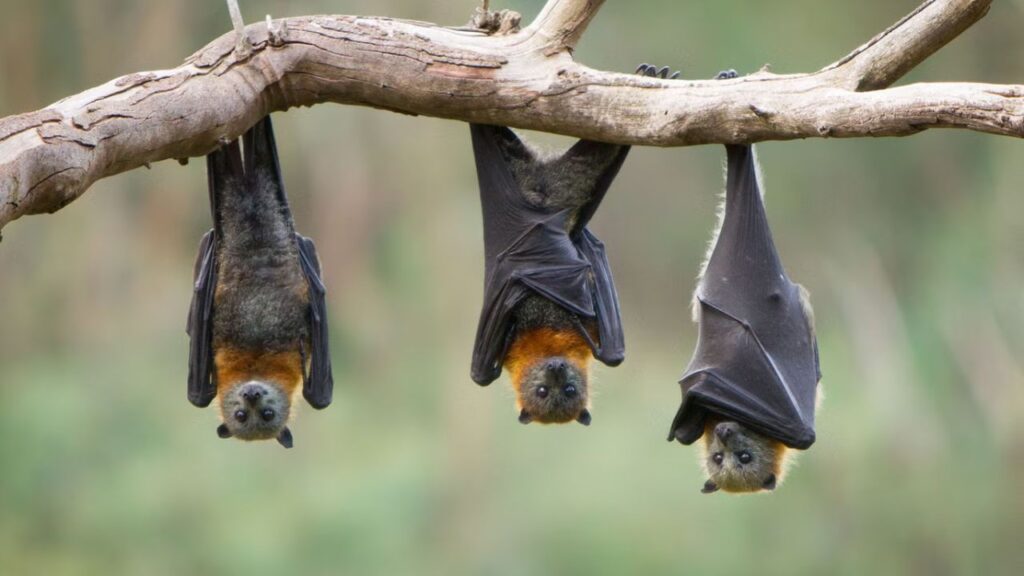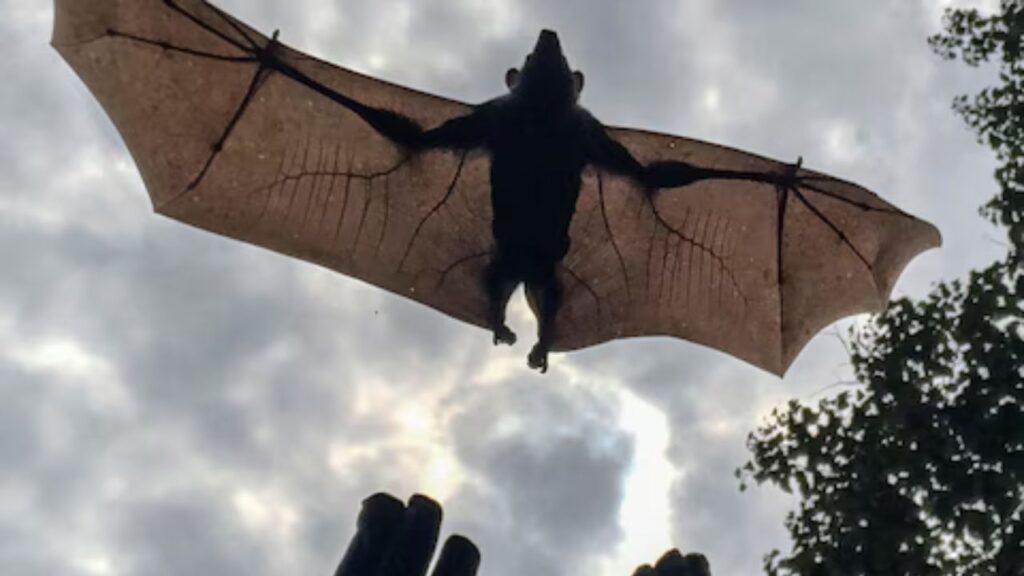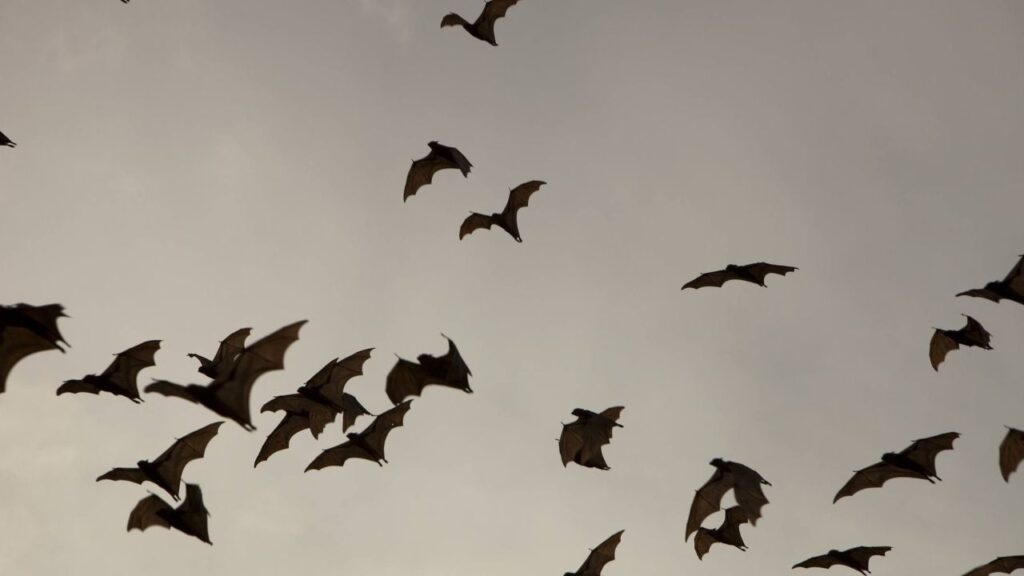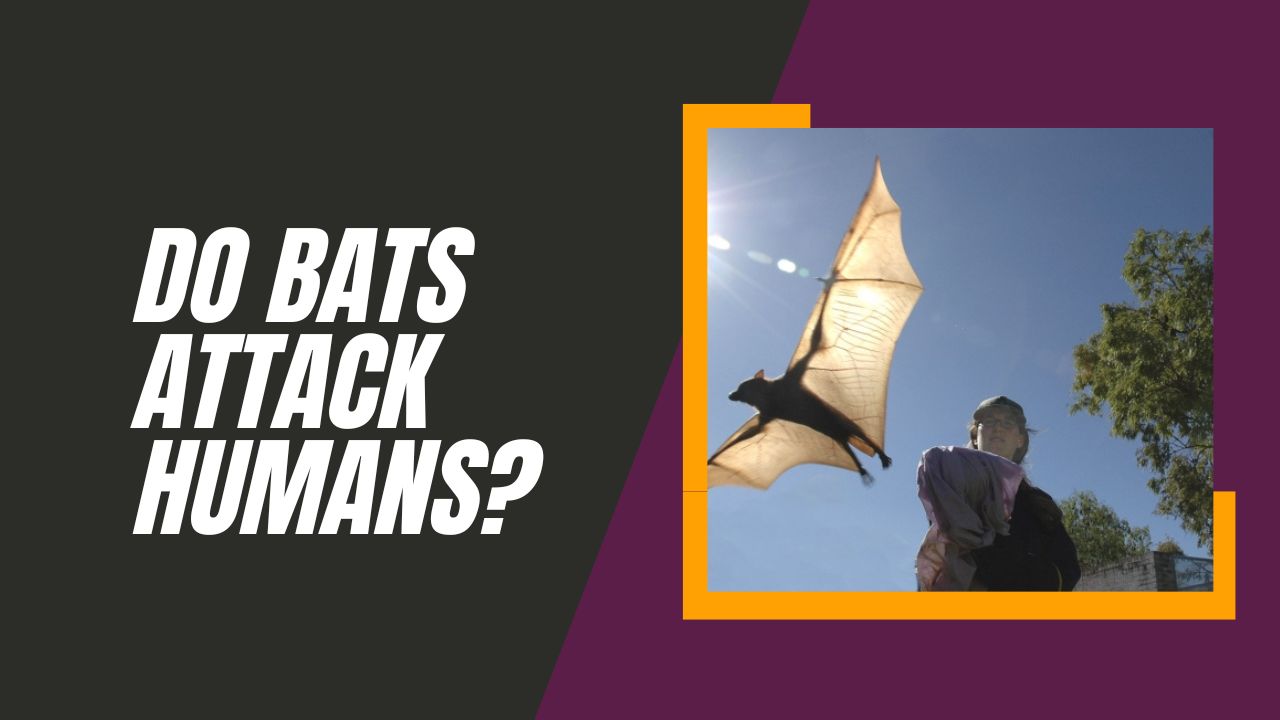Last updated on July 27th, 2024 at 02:29 pm
Do Bats Attack Humans? Bats do not generally attack humans. Most species avoid human interaction and only come close if they are chasing insects.
Bats are fascinating creatures that often evoke both curiosity and fear.
While they play crucial roles in ecosystems, such as insect control and pollination, the question of whether they pose a threat to humans is common.
In this article, we’ll delve into the behavior of bats, their interactions with humans, and the health risks associated with them.
Contents
Who Are Bats?
Bats belong to the order Chiroptera and are the only mammals capable of sustained flight. They come in various species, ranging from tiny fruit bats to large flying foxes.
Despite their diversity, most bats share similar traits: they are nocturnal, use echolocation to navigate, and primarily feed on insects, fruit, or nectar.

Understanding Bat Behavior
Natural Habitat and Diet
Bats are primarily insectivores, frugivores, or nectarivores, depending on the species. [Do Bats Attack Humans?]
Insectivorous bats consume vast quantities of insects, including mosquitoes and beetles, which makes them valuable for pest control.
Frugivorous bats, on the other hand, feed on fruits and play a vital role in seed dispersal. Nectarivorous bats, like the Mexican long-tongued bat, are crucial pollinators for various plants.
Social Structure and Roosting
Most bats are social animals, often roosting in colonies that can number in the thousands. They roost in a variety of places, including caves, trees, and buildings.
The social structure within these colonies can be complex, with individuals having specific roles and relationships.

Do Bats Attack Humans?
Bats’ General Behavior Towards Humans
In general, bats are not aggressive towards humans. They tend to avoid contact and are more likely to flee if approached.
Bats usually come into close proximity to humans accidentally, often while chasing insects or when roosting sites are disturbed.
Instances of Aggression
There are rare instances where bats might bite humans, but these are typically defensive actions rather than attacks. [Do Bats Attack Humans?]
For example, if a bat feels threatened or cornered, it may bite in self-defense. However, such cases are unusual and not indicative of a broader pattern of aggression.

Health Risks Associated with Bats
Rabies
One of the primary health concerns with bats is rabies, a viral disease that affects the nervous system. Rabies can be transmitted through bites or scratches from an infected bat.
Symptoms of rabies in humans include fever, headache, and confusion, which can progress to severe neurological symptoms.
If bitten by a bat, it’s crucial to seek medical attention immediately for post-exposure prophylaxis.
Histoplasmosis
Bats can also be carriers of histoplasmosis, a fungal infection that affects the lungs. The fungus that causes histoplasmosis thrives in bat droppings (guano).
Inhaling dust contaminated with bat guano can lead to respiratory issues, particularly in people with weakened immune systems.
Other Potential Risks
While less common, exposure to bat saliva or urine may pose health risks. Additionally, people with compromised immune systems or those in frequent contact with bats should take extra precautions to avoid potential health issues.
Prevention and Safety Measures
Avoiding Bat Contact
To minimize the risk of encounters with bats, avoid disturbing their roosting sites. If you come across a bat, do not attempt to handle it.
Instead, observe from a safe distance and allow the bat to fly away on its own. [Do Bats Attack Humans?]
Managing Bat Infestations
If bats have taken residence in your home or property, contact a professional wildlife control service.
They can safely remove the bats and prevent future infestations. Ensure that any entry points are sealed to prevent bats from re-entering.
Seeking Medical Attention
If bitten or scratched by a bat, seek immediate medical attention. Rabies is a serious disease, and timely intervention is crucial.
For potential histoplasmosis exposure, consult a healthcare provider if you experience respiratory symptoms after exposure to bat droppings.
See Also: Do Foxes Attack Humans? The Chilling Truth!
Frequently Asked Questions (FAQs)
Are all bats dangerous to humans?
No, most bats are not dangerous to humans. They are generally shy and avoid contact. The primary risks come from potential disease transmission rather than aggressive behavior.
How can I tell if a bat is rabid?
Rabid bats may display unusual behavior, such as being unusually aggressive or disoriented. However, not all bats exhibiting strange behavior have rabies. If you suspect a bat is rabid or if you are bitten, seek medical advice promptly.
Can I keep a bat as a pet?
Keeping a bat as a pet is not recommended. Bats require specific care and habitat conditions that are difficult to replicate in a domestic setting. Additionally, keeping wild animals as pets can pose health risks and legal issues.
What should I do if I find a bat in my home?
If you find a bat in your home, do not attempt to handle it. Open windows or doors to allow the bat to exit on its own. If the bat is injured or cannot leave, contact a wildlife control professional for assistance.
Conclusion: Do Bats Attack Humans?
While the idea of bats attacking humans can be unsettling, the reality is that such occurrences are rare.
Bats generally avoid human interaction and pose a minimal threat when proper precautions are taken.
Understanding their behavior and potential health risks can help mitigate concerns and foster a greater appreciation for these remarkable animals.
By taking preventive measures and seeking medical advice when necessary, you can safely coexist with bats and benefit from their ecological contributions.

Hello, I am Rosa Ellis, a mother of two and a wildlife blogger. I grew up in New York City, but I love exploring forests. I’ve traveled to places like Yellowstone National Park and the Amazon Rainforest to see animals up close. I know a lot about animal behavior and which animals can be dangerous to humans. Thanks for visiting my blog!

